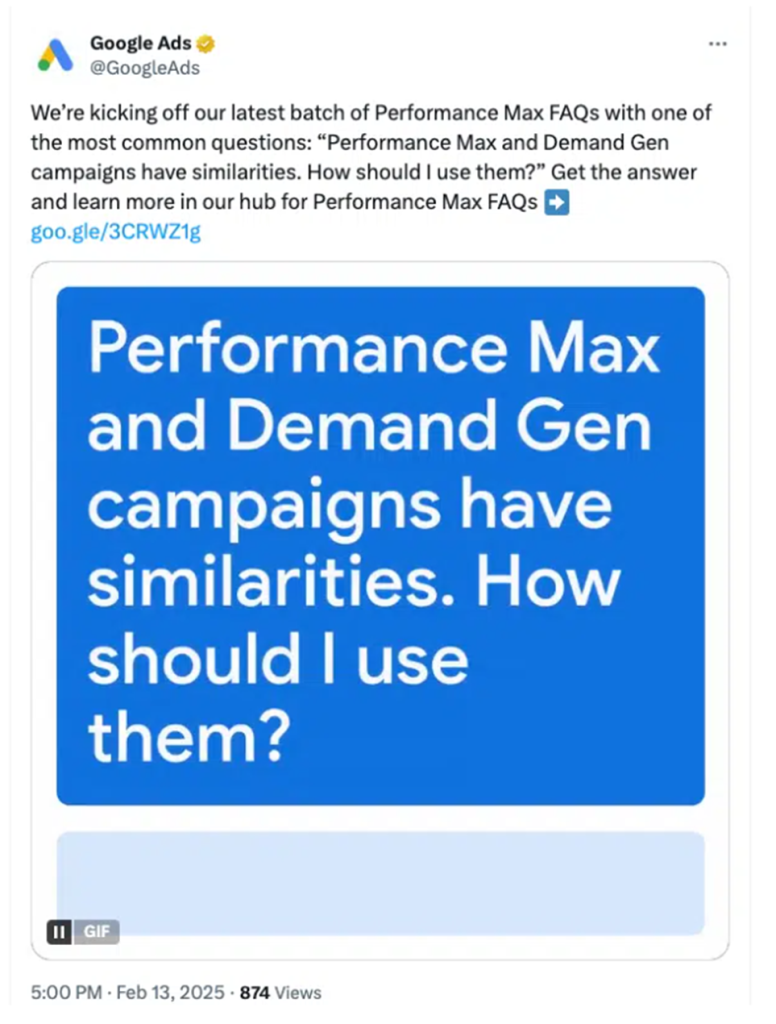
As February reached its second week, Google has addressed common inquiries about Performance Max by providing detailed responses based on insights from webinars, advertiser roundtables, and account team interactions. In addition, Chrome is launching a preload feature that allows users to load search result pages in advance when they enter search terms in the address bar or use the search field on Android devices. Notably, Google Search is exhibiting an unusual behavior by displaying a snippet with a future date, specifically “in 7 days”, instead of the standard timestamps that indicate when content was last crawled.
Google Addresses Important Performance Max Issues in FAQ
Google provided detailed responses to the common inquiries regarding Performance Max, which were informed by input from webinars, advertiser roundtables, and interactions with account teams.
Google’s Performance Max has emerged as a key component of its advertising platform, yet advertisers have voiced apprehensions regarding its opaque operation and inconsistent performance in achieving various business objectives.
Advertisers are facing challenges with Google’s AI-driven Performance Max campaigns, prompting the company to tackle important issues related to transparency, lead quality, and campaign improvement. Google has recently updated their guide, building on the progress they made last year.
Main issues discussed:

Google is taking steps to alleviate advertiser concerns about Performance Max, while preserving the AI-powered technology that drives its effectiveness. The company notes that the FAQ section is a work in progress, with plans to incorporate additional questions and answers based on ongoing advertiser input and platform enhancements. As Performance Max continues to be a valuable resource for multi-channel advertising, Google recognizes the importance of providing advertisers with more transparency and flexibility to optimize their campaigns. Advertisers are encouraged to revisit the FAQ section periodically for new and updated information as Google continues to refine and expand its FAQ documentation.
Google Search has Implemented the Speculation Rules API to Enhance Search Speed
Chrome is introducing a feature that preloads search result pages – available to users who have enabled the preload function – whenever they enter search terms in the Chrome address bar or use the search field on Android devices.
When using Chrome for Google Search, the search process may be quicker now. Google is utilizing the Speculation Rules API to bring up search results in advance, which improves the speed of the overall Google Search experience.
Google has been leveraging the Speculation Rules API to enhance the browsing experience by accelerating the transition from search results to linked pages, and in doing so, has utilized certain API features that may also benefit other website administrators, according to a post on the Chrome Developers blog.
To enhance the search experience, Google proactively loads the top two search results, accelerating the process. This is achieved by utilizing the “requires configuration” feature, which ensures that prefetches are routed through Chrome’s private prefetch proxy, and by implementing the “referrer_policy” setting, which prevents any sensitive information from being transmitted to the website via the HTTP referer header.
Having a quicker Google performance could result in increased user numbers, higher website traffic, and potentially more satisfied customers who are more likely to make purchases. However, this is contingent on your website being easily found in Google Search. For further technical information, you can refer to the related post on Google’s official blog.
Is the Appearance of a Future Date in a Google Search Snippet a Mistake or Intentional?
Google Search is displaying a preview with a date that has yet occurred, which is unusual since these summaries typically include timestamps indicating when the content was last crawled, such as “X days ago” or “Y hours ago.” Instead, this particular snippet is showing a future date, specifically “in 7 days” from the current time.
Here is the snippet:

Glen Allsopp, aka @ViperChill, made a discovery on Google by searching for [Wix Q4 2024]. He found that Wix’s press room had published the news on January 29, 2025, but what’s interesting is that the actual earnings date listed (as of the time the screenshot was taken) was scheduled to take place seven days later, on February 19, 2025.
Recently, we’ve encountered instances where Google displayed future dates in its snippets, which isn’t uncommon given the search engine’s history of issues with snippet dates. However, this particular case than a glitch. Is this a deliberate feature or an error? Join the conversation at X to share your thoughts.